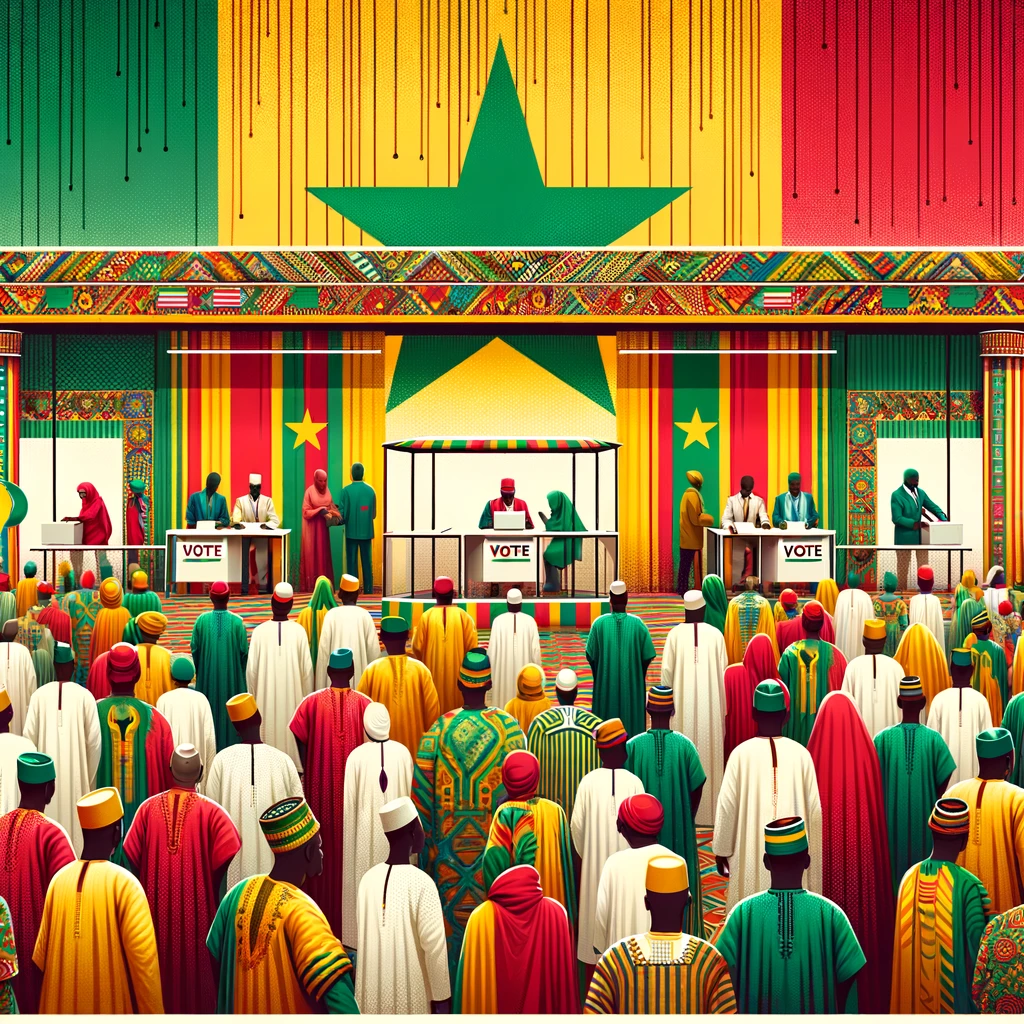
Elections in Senegal (today, 24 March) emerge not only as a national political event, but as a phenomenon with significant international repercussions, capable of influencing the dynamics of regional stability and foreign relations, including ties with Brazil. The electoral process, marked by tensions and expectations, raises concerns about the continuity of the democratic tradition and political stability in the country, a pillar of balance in West Africa. This article seeks to examine the risks associated with this transition period in Senegal and reflect on the actions that Brazil could adopt to support the maintenance of Senegalese political stability.
Senegal's stability is crucial not just for the nation itself, but for the entire West African region, often shaken by conflicts and political instability. The unfolding of the elections and the subsequent transition period have the potential to negatively affect this stability, generating uncertainties that can transcend national borders. This situation creates an atmosphere of surveillance for countries like Brazil, which maintains a series of economic and strategic interests in the region.
From an economic point of view, Potential political instability in Senegal could harm trade relations with Brazil. Commercial agreements, investments and cooperation projects could be affected, ranging from the export of Brazilian products to joint initiatives in the energy sector. Therefore, It is essential that Brazil closely monitors developments in Senegal, preparing to adjust your economic strategies as needed.
Diplomatically, Brazil has a relevant role to play. As an emerging global player and regional leader in Latin America, Brazil can support political stability in Senegal through diplomatic channels, promoting dialogue and cooperation. Initiatives may include support for electoral observation missions, offering technical assistance for institutional strengthening or even facilitating dialogues between different Senegalese political actors.
Culturally, instability in Senegal could affect cultural and educational exchanges that enrich both Brazil and Senegal. this dimension, often underestimated, has the power to build bridges of understanding and solidarity between people. Brazil can intensify exchange programs and joint cultural projects, promoting social stability and mutual understanding.
Besides that, the Brazil, with its historic stance of non-intervention, can help foster an environment conducive to peaceful conflict resolution in Senegal, always respecting the sovereignty and internal decisions of the country. Security collaboration, especially in combating terrorism and preventing conflicts, could be a mutually beneficial area of cooperation, helping to maintain stability in both Senegal and the wider West African region.
Brazil, therefore, ahead of the elections in Senegal, is faced with an opportunity to reaffirm its commitment to stability, democracy and sustainable development. Supporting Senegal at this critical moment is investing in the security and prosperity of a region with which Brazil maintains historical and strategic ties. Acting with prudence and solidarity, Brazil can play a fundamental role in promoting stability in Senegal, benefiting not only both countries, but also the international community.
